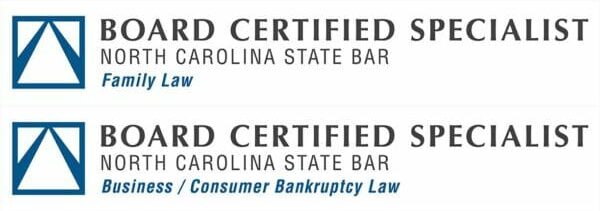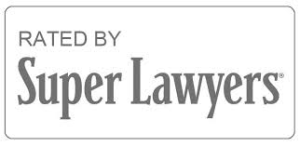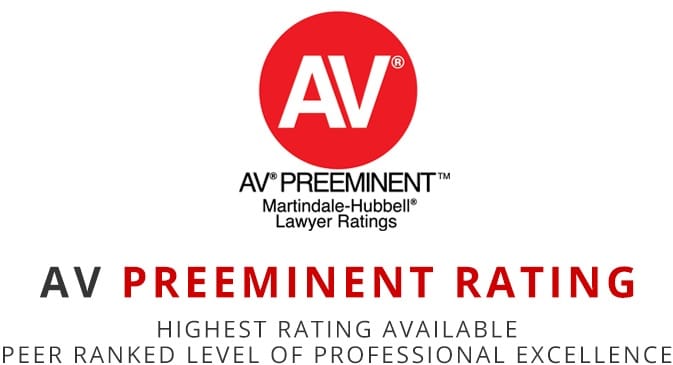Chapter 7 Bankruptcy
Greensboro / Triad Bankruptcy Attorneys
Do you have significant credit card or medical debt? Are you worried that you have accumulated bills that you lack the ability to pay? Depending on several factors, including income, assets, and the amount and type of your debts, you may qualify to file for bankruptcy relief. Bankruptcy laws were designed to allow debtors a way out of heavy debts, and to give individuals and businesses a fresh start. As experienced bankruptcy attorneys in Greensboro, the law firm of Hill Evans Jordan & Beatty PLLC works with financially distressed individuals to determine whether bankruptcy is a viable option.
Basics of Bankruptcy
A goal of any bankruptcy is to obtain a discharge of your debts, which is a court order that releases you from personal liability from all or a part of those debts. A discharge prevents creditors or collection agencies from harassing you or threatening you about these debts. While there are several different types of bankruptcy available to individuals, the two most common chapters of personal bankruptcy are plans under Chapter 7 and Chapter 13. A Chapter 7 plan, sometimes referred to as a “liquidation” plan, is the most common type of bankruptcy and is where a bankruptcy trustee reviews your assets and potentially sells some of them to pay the creditors in your case. In comparison, a Chapter 13 plan is a “payment” plan in which a portion of your monthly income is paid over to the bankruptcy trustee who then pays your creditors over a 3 to 5 year period. Upon the successful completion of any bankruptcy plan, you would get a “fresh start” from many of your debts, and would be in a much greater financial position going forward.
A bankruptcy case is started when you file a bankruptcy petition with the United States Bankruptcy Court. This petition generally sets forth all of your assets, all of your debts, your income, as well as other information. A careful analysis and review of your entire financial situation by an experienced attorney is necessary to ensure that your bankruptcy petition is complete and accurate. On your petition, you are also allowed to claim that some or all of your assets are exempt.

(336) 379-1390
Bankruptcy Services

Exempt Property
Each state, North Carolina included, allows a debtor to “exempt” certain property from the claims of a creditor. This means that you are entitled to protect some or all of your property from creditors so long as the property does not exceed the available exemption amount. Through proper exemption planning, it may be possible to convert your non-exempt property into an exempt asset. Under North Carolina law, you are allowed to exempt up to a certain amount of equity in a residence, up to a certain amount of equity in a vehicle, as well as an interest in household goods, retirement plans, tools of the trade, alimony payments, child support payments, and a few additional categories. Our attorneys are skilled and experienced at determining how much of your assets you can claim as exempt, and will work with you to maximize the amount of property that you can keep.
Automatic Stay
When you file your bankruptcy petition, the “automatic stay” protection is immediately and automatically triggered. The “automatic stay” is a law that at least temporarily prevents most creditors from taking any actions against your property. For example, the automatic stay would halt a foreclosure, repossession, or any other lawsuit, and also prohibits creditors and debt collection agencies from contacting or harassing you regarding your unpaid bills and debts. Instead, these creditors are required to contact your attorneys and can be sanctioned for any violations.
What debts can you discharge?
While many debts are discharged following the successful completion of your bankruptcy plan, there are certain types of debts that are not discharged. In general, the types of debts that cannot be discharged following bankruptcy include certain tax debts, child support, alimony, debts not set forth in the bankruptcy petition, debts to governmental units for fines and penalties, certain student loans, and others. It is also important to note that you can discharge slightly more of your debts in a chapter 13 bankruptcy as opposed to a chapter 7 bankruptcy. A careful analysis of your particular financial situation by our knowledgeable attorneys will help you evaluate whether all of your debts can be discharged, and which plan is the best fit for you.
What is Chapter 7 Bankruptcy?
Also known as a liquidation plan, Chapter 7 bankruptcy is a simple and fast way to obtain a discharge of all or most of your debts, and most bankruptcy cases filed in the United States are Chapter 7 plans. In a Chapter 7 case, after listing all of your assets and your debts, all of the nonexempt property is sold by the bankruptcy trustee so that the proceeds can be used to satisfy creditors. However, as discussed above, you are allowed to exempt certain property from the claims of your creditors, so it may be possible to exempt all of your assets.
To determine if you are eligible for a Chapter 7 bankruptcy, and unless most of your debts are business debts, you have to pass what is called the means test, which looks at your income and expenses. To pass, your household income needs to be under the median income level for your area of residence (adjusted depending on the number of people in your household). Even if your household income is above this median level, it may still be possible to qualify for Chapter 7 relief. Furthermore, if you do not pass this test, you can still file for Chapter 13 bankruptcy relief.
Advantages and disadvantages of filing personal bankruptcy under Chapter 7 are:
- Not all debts can be discharged through bankruptcy. Those that cannot include alimony, child support, student loans and certain tax debts. Credit card bills and medical debts usually can be discharged. If your debt cannot be discharged, you will still owe it even after the successful completion of your case.
- You may lose some of your property. The bankruptcy trustee will review all of your assets and sell those that are not exempt. It is often possible to protect your home, car, work tools, furniture, other household goods, retirement accounts, and other assets. However, if you own property that is not exempt, the bankruptcy trustee will likely take this property and sell it to distribute the proceeds to your creditors.
- A bankruptcy filing will be reflected on your credit report. The filing of a Chapter 7 case will stay on your credit for 10 years and will affect your ability to obtain a home mortgage and other types of credit. However, you can rebuild your credit if you have steady employment or if you make payments towards your ongoing debts.
- Calls from creditors and debt collectors must stop, as well as lawsuits and collection efforts. As soon as your case is filed, the “automatic stay” of the bankruptcy code is triggered, which prevents a creditor from harassing you about your debts and also immediately stops any lawsuits, repossessions, or collection efforts.
- In most cases, filing for bankruptcy does not affect your future income. When you file a Chapter 7 plan, most debtors are not required to inform their employer, and bankruptcy laws contain some protections protecting debtors from being discriminated against.
Most Chapter 7 cases are completed quickly. A typical Chapter 7 bankruptcy case takes six months or less, and requires only one court appearance. This allows you to obtain your “fresh start” relatively quickly.
We Can Help
Our bankruptcy lawyers in Greensboro are experienced in helping individuals or businesses navigate the legal complexities involved with bankruptcy law and serve as unbiased advisers during what can be a stressful and emotional process, protecting you from mistakes, uncertainty and harassment. At Hill Evans Jordan & Beatty PLLC, our bankruptcy practice is led by Rett Saslow, a 40 year-plus veteran in debt relief matters who is a Board Certified Specialist in Consumer and Business Bankruptcy and who also serves as a Chapter 7 bankruptcy trustee. He, along with the other bankruptcy attorneys and staff, can help individuals understand and navigate this process, with the ultimate goal of providing you with a fresh start.
To find out if bankruptcy is an option for your situation, contact one of our experienced bankruptcy attorneys. Call 336-379-1390 to schedule your free consultation today.
FIRM RECOGNITION


NC Super Lawyers

AV Preeminent Lawyers

